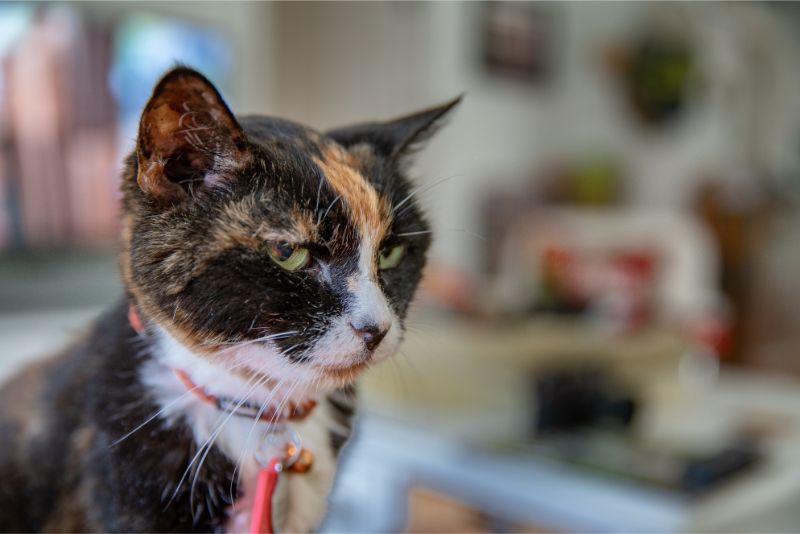
When you look around your pet’s environment and consider potential toxins, the usual suspects probably come to mind: chocolate, Xylitol (a key ingredient in sugar-free foods and some peanut butter), antifreeze, medications, etc. However, in regions like ours – where the winters are mild and beautiful foliage and robust agriculture are plentiful – there’s an increased risk of exposure to outdoor pet toxins.
Reducing or eliminating your pet’s exposure to toxins, as well as being able to recognize and respond to a pet poisoning emergency, are key when it comes to protecting your furry loved one.
Outdoor Pet Toxins
Always make sure the following outdoor pet toxins are stored safely out of your pet’s reach (or avoid them altogether!):
- Rodenticides/insecticides – Anything designed to kill a rodent can also kill a cat or dog. Even if the poison is placed out of reach, rodents may move the granules to a different located to which your pet has access. Avoid these toxins by switching to a safer form of pest control, such as traps or ultrasonic devices.
- Bone meal/blood meal/fertilizers – The high nitrogen levels in most soil amenders can have serious consequences for pets, including nausea, vomiting, diarrhea, lethargy, and pancreatitis. Ingestion of bone meal or the packaging it came in can lead to dangerous intestinal obstructions.
- Herbicides – Common herbicides, such as glyphosate, pyridine, and 2,4–D, can cause gastrointestinal distress, aspiration pneumonia, nervous system depression, and tremors. Use sparingly, and make sure your pet doesn’t go outside once they’re applied. Switch to more natural products whenever possible.
- Cocoa bean mulch – This fragrant and richly colored mulch is a popular choice for landscaping, but since it’s a byproduct of chocolate production, it’s also a potential pet poison. Dogs are particularly drawn to cocoa bean mulch, and eating it can result in toxic side effects similar to that of chocolate.
- Compost – Compost bins should be securely covered at all times, as they may contain coffee grounds, egg shells, onion peels, decaying food, and other items pets should avoid.
- Antifreeze – All automotive fluid poses a threat to pets, but antifreeze takes the cake. Many pets find the sweet odor and taste irresistible. It only takes a tiny amount to sicken or kill a pet (two teaspoons for a cat and two tablespoons for a medium-sized dog). Always store this product in a tightly sealed container out of reach, and clean up any spills immediately. Consider switching to a less toxic version containing propylene glycol.
Dangerous Greenery
No discussion of outdoor pet toxins is complete without mentioning the many lovely plants and shrubbery that could be hazardous. Check the ASPCA’s list of toxic plants before making any additions to your home or yard. Some of the more common toxic outdoor plants include:
- Lilies (all parts of the lily plant are extremely poisonous to cats)
- Rhododendrons
- Azaleas
- Crocus
- Oleander
- Laurel
- Sago palm
- Aloe vera
Handling a Pet Toxin Emergency
Any exposure to an outdoor pet toxin should be considered a medical emergency. If you think your pet has ingested something poisonous, please don’t wait to seek treatment. If possible, save the packaging of whatever your pet ingested, as this can help with the process of diagnosis and treatment. Remember to call Shiloh Veterinary Hospital right away or contact a nearby veterinary emergency clinic if a situation occurs outside our normal business hours.
Our team is always here for you and your pet! Please don’t hesitate to contact us with any questions or concerns.
